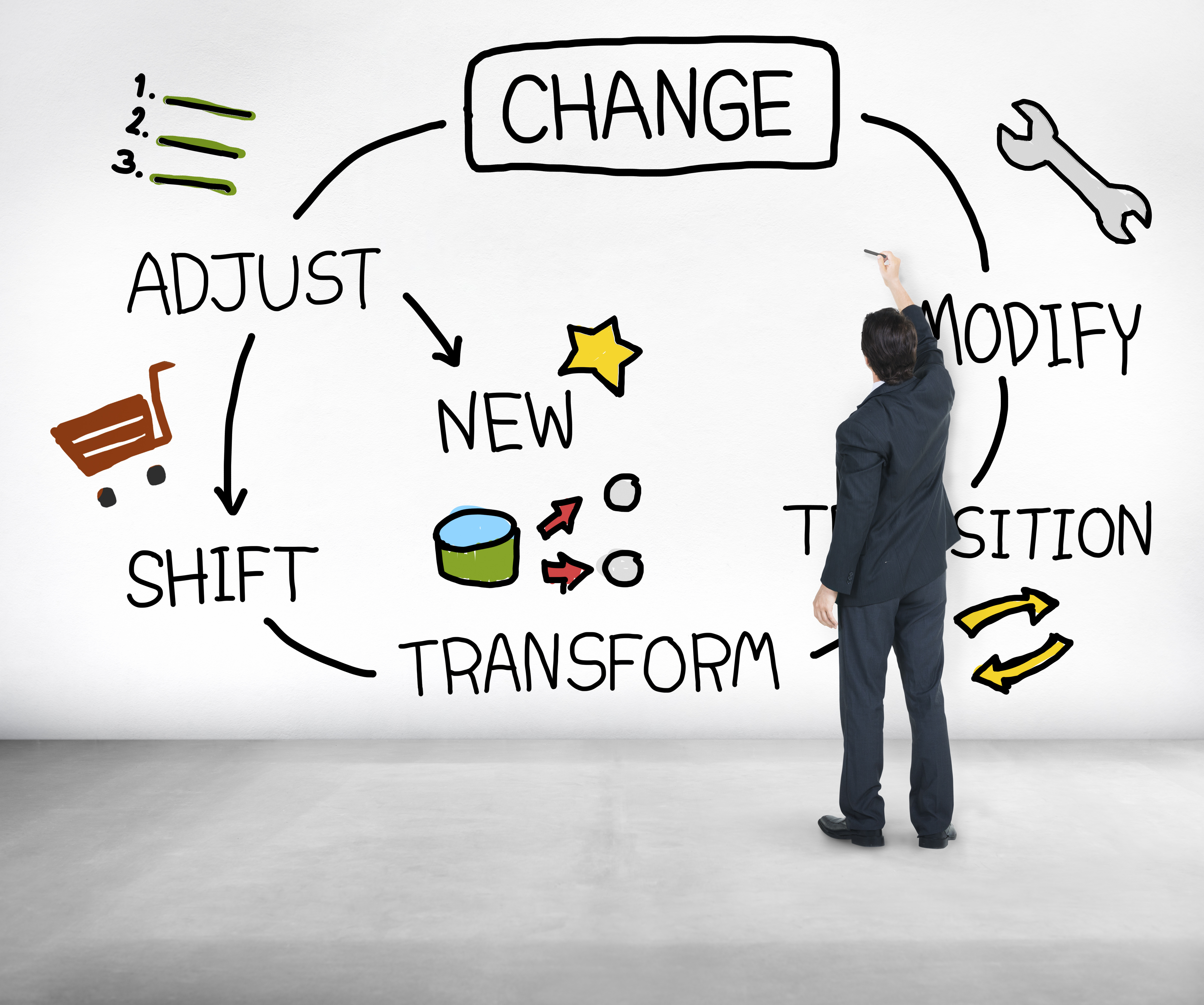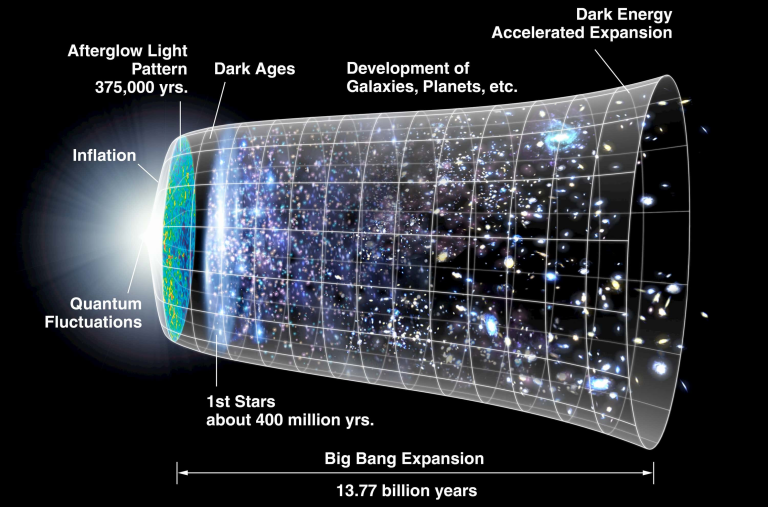Change is an inevitable part of life, serving as both a catalyst for growth and a source of anxiety. Embracing change can significantly enhance personal development, illuminating the path toward a more fulfilling existence. Yet, the psychology of change often reveals the complex emotions and resistance that accompany it. As we evolve, it becomes paramount to engage actively with the transformations around us, recognizing change as a vital aspect of human evolution. In the realm of self-help, understanding how to navigate change can lead to profound insights, ultimately helping us to thrive amid life’s uncertainties.
The concept of transformation permeates our lives, shaping our identities and experiences in profound ways. Exploring the dynamics of personal evolution can illuminate the intricacies of adaptation and growth, revealing how we can optimize our development. Through the lens of psychological resilience, we uncover the mechanisms that drive our responses to life’s fluxes. Each opportunity for change presents a chance to reassess our beliefs and behaviors, encouraging a rich dialogue between our past selves and present aspirations. As we embark on this journey of self-discovery, we learn that the art of thriving lies in our willingness to confront the unknown.
Understanding the Psychology of Change
Change is a multifaceted concept, especially within the realm of psychology. It encompasses not only the visible transformations in behavior and attitude but also the internal shifts in our thoughts and beliefs. Embracing change involves re-evaluating our perceptions and being open to new experiences. Renowned psychologists argue that our willingness to adapt and evolve stems from our intrinsic motivations and the circumstances surrounding our lives. Embracing change is essential for personal development, as it allows us to break free from the confines of our comfort zones and explore the broader landscape of human experience.
The process of change can often bring discomfort, but it is a necessary aspect of human evolution. Individuals may fear the unknown, which can hinder their willingness to embrace new situations. Yet, it’s vital to recognize that change isn’t inherently negative; it can lead to growth and a deeper understanding of oneself and others. The psychology of change emphasizes that recognizing the inevitability of transitions in life can liberate individuals, enabling them to approach change as an opportunity rather than a threat. This shift in perspective is crucial for achieving authentic self-help and improvement.
The Role of Embracing Change in Personal Development
Embracing change is not just a psychological necessity; it’s a fundamental component of personal development. Many individuals refrain from stepping outside their habitual routines, fearing what change may bring. However, the journey of self-discovery often begins when we commit to embracing change. This commitment allows individuals to identify areas for growth and take actionable steps toward achieving their personal and professional goals. Setting intentions around embracing change is what drives progress, helping individuals realize their true potential.
Incorporating the practice of self-reflection is essential for those wishing to embrace change actively. This means regularly assessing one’s values, beliefs, and capabilities to understand how they might evolve over time. Engaging with one’s inner self can unlock new pathways for growth, making personal development an exciting and ongoing journey rather than a fixed destination. Cultivating an openness to change empowers individuals to redefine their identities and pursue fulfillment beyond their current circumstances.
The Intersection of Personal Development and Human Evolution
The concept of human evolution extends beyond biological changes to encompass psychological and emotional growth. As humans, our ability to adapt is deeply rooted in our shared history as a species. Evolution is not merely about physical transformation; it speaks to our increasing capacity for empathy, intellect, and emotional depth. Understanding this aspect of human evolution can inspire individuals to engage more actively in their personal development journeys. By recognizing ourselves as ever-evolving beings, we can better appreciate the significance of embracing change.
Furthermore, personal development lessons can be derived from examining historical change and social progress. Movements advocating for social justice, equality, and environmental stewardship reflect the collective capacity for change rooted in empathy and understanding. This human evolution narrative encourages individuals to participate actively in their personal journeys while fostering a sense of collective responsibility for broader societal challenges. Embracing change in our personal lives can, in turn, contribute positively to the world around us.
The Impact of Self-Help and Resilience on Change
Self-help has evolved as a powerful tool for individuals seeking to embrace change and foster personal development. The multi-billion-dollar industry reflects a widespread recognition of personal growth’s significance in navigating life’s challenges. Self-help resources provide strategies for building resilience, teaching individuals to adapt to and thrive despite adversity. By actively engaging with self-help practices, individuals gain insights into their behaviors and emotions, equipping them to embrace change more effectively.
Resilience is a key component in this process, allowing individuals to recover from setbacks and face new challenges with courage. When we cultivate resilience, we become more open to embracing change, viewing it as a stepping stone rather than a stumbling block. This mindset shift can dramatically improve our quality of life and pave the way for significant personal transformation. Integrating self-help methods alongside resilience training empowers individuals to navigate their unique paths to growth.
Addressing Fear of Change and Its Consequences
Fear of change can significantly hinder personal growth, leading to feelings of stagnation and dissatisfaction. This fear often arises from a basic human instinct to seek stability and avoid discomfort. Yet, those who resist change may find themselves stuck in unfulfilling patterns, ultimately leading to cynicism and withdrawal. Recognizing this fear is the first step towards taking action. As noted by psychological experts, addressing these fears through self-reflection and acknowledgment can foster a healthier attitude towards change.
Furthermore, understanding the consequences of resisting change can motivate individuals to embrace it. By exploring narratives of successful change, we can observe how others have navigated transitions and emerged with newfound strength and wisdom. Learning from these stories can provide a framework for individuals facing their fears, illustrating that change is not only possible but can lead to profound personal development. Ultimately, re-framing our relationship with change as an ally instead of an adversary can transform our lives.
Creating a Framework for Embracing Change
Developing a structured approach to embracing change can set individuals up for success in their personal development journeys. This framework often begins with self-acquisition of knowledge – understanding one’s values, motivations, and long-term goals is essential. Individuals can take actionable steps by creating a personal mission statement that aligns with these insights and sets a clear intention to embrace change. This clarity empowers individuals to move forward with confidence, knowing exactly what they aim to achieve.
Moreover, goal-setting plays a crucial role in this framework. By setting SMART (Specific, Measurable, Achievable, Relevant, Time-bound) goals, individuals can track their progress and celebrate milestones along the way. This not only reinforces the value of change but also boosts self-efficacy. As individuals witness their capacity to adapt and grow, they reinforce their belief in change as an essential aspect of their ongoing development.
Cultivating Change as a Lifelong Journey
Change is not a one-time event but a lifelong journey that individuals must embrace. Understanding that personal development is an ongoing process allows individuals to be kinder to themselves during challenging times. Cultivating a growth mindset facilitates an openness to learning and shifting perspectives, which is crucial for sustained change. As life presents different challenges and opportunities, remaining adaptable becomes essential for navigating the ebbs and flows of life.
In this context, it’s important to apply the lessons of embracing change continuously. The tools and techniques learned from past experiences can inform future decisions, refining one’s approach to personal development. Each evolution of self can be seen as a stepping stone towards improving not only oneself but also influencing others positively. As individuals evolve, they contribute to the collective human experience, reinforcing the idea that embracing change is not just about personal gain, but about striving for a better society as a whole.
Harnessing the Power of Stories for Change
The power of storytelling cannot be underestimated in the realm of personal development and embracing change. Stories of individuals and communities overcoming adversity serve as powerful motivators for individuals seeking their paths of growth. When we share and listen to these narratives, we uncover shared experiences that resonate on a personal level, illustrating that change is both achievable and necessary across different life stages. These stories reinforce the belief that transformation is possible, inspiring others to take similar steps in their journeys.
Moreover, personal stories create connections among individuals, fostering a sense of community and shared responsibility. By acknowledging and embracing our collective struggles and triumphs, we can provide support for each other in our endeavors to embrace change. This sense of shared experience cultivates an environment where individuals feel encouraged and empowered to pursue their paths of personal development, recognizing that they are not alone in their pursuits.
The Future of Change in a Rapidly Evolving World
As we progress into an increasingly complex and rapidly evolving world, the importance of embracing change will only grow. Climate change, technological advancement, and societal shifts require not only individual adaptability but also collective action. Personal development is becoming essential in preparing individuals to navigate these uncertainties, allowing for proactive engagement with change rather than reactive responses. Those who cultivate the skills needed to embrace change will likely thrive, while resistance to change can lead to stagnation.
In this context, fostering resilience and adaptability becomes crucial. Educational systems and self-help initiatives must prioritize teaching strategies that empower individuals to view change as an opportunity for growth. As we evolve as a society, recognizing the inherent value of personal and collective evolution will also be vital in addressing larger global issues. Embracing change becomes not just a personal endeavor, but a collective responsibility towards a more adaptable and resilient future.
Frequently Asked Questions
How can I embrace change in my personal development journey?
Embracing change in your personal development journey involves recognizing that change is a constant part of life. Start by setting clear, achievable goals that align with your values. Reflect on your experiences and be open to new perspectives. Engaging with self-help resources, like books and workshops, can provide tools to cultivate resilience and adaptability, ultimately enhancing your ability to embrace change.
What is the psychology of change and how does it affect personal growth?
The psychology of change refers to the mental processes and emotional responses individuals experience during transitions. Understanding this psychology can greatly enhance personal growth, as it highlights the importance of mindset, motivation, and coping strategies. By learning to manage fear and resistance to change, individuals can foster a growth mindset that embraces new opportunities and challenges, leading to profound personal transformations.
Why is embracing change essential for human evolution?
Embracing change is vital for human evolution because it fuels adaptability and innovation. Throughout history, humanity has thrived by responding to environmental shifts and social dynamics. By accepting change, we enhance our ability to evolve, improve societal structures, and advance our collective knowledge. This willingness to adapt not only fosters individual growth but also strengthens communities and cultures in a rapidly changing world.
How can self-help techniques support my ability to change?
Self-help techniques, such as goal setting, mindfulness practices, and positive affirmations, can significantly bolster your ability to change. These practices encourage self-reflection, emotional regulation, and a proactive approach to challenges. By incorporating self-help strategies into your routine, you can develop the confidence and resilience needed to navigate life’s inevitable changes more effectively.
What role does disillusionment play in the psychology of change?
Disillusionment often serves as a catalyst for change by prompting individuals to reevaluate their beliefs and expectations. While it can lead to negative feelings like bitterness, it can also motivate a deeper understanding of reality. By embracing disillusionment as a phase of growth, individuals can facilitate personal development, leading to richer life experiences and a more profound capacity for change.
Can anyone genuinely change or are some people resistant to personal development?
While anyone has the potential to change, resistance can stem from various factors, including personality traits and past experiences. Some individuals may prefer stability and fear the unknown aspects of change. However, by fostering a supportive environment, cultivating self-awareness, and skillfully navigating their fears, individuals can progressively open themselves to personal development and transformation.
How does the fear of the unknown impact people’s willingness to embrace change?
Fear of the unknown can significantly hinder individuals’ willingness to embrace change, often leading them to stick with familiar routines and behaviors. This anxiety stems from uncertainties surrounding the outcomes of change and the potential loss of identity. Developing coping strategies, such as reframing thoughts and gradually facing fears, can help individuals mitigate these fears, allowing them to explore new possibilities confidently.
What is the relationship between human evolution and our ability to embrace change?
Human evolution heavily relies on our ability to embrace change, both biologically and culturally. Change leads to adaptations that can enhance survival and social cohesion. The flexibility to adjust to new environments, challenges, and knowledge allows humans to innovate and improve overall quality of life. Embracing change thus becomes a fundamental component of our ongoing evolutionary journey, ensuring our resilience and growth.
How can I foster a growth mindset to better embrace personal change?
To foster a growth mindset for embracing personal change, start by recognizing that abilities and intelligence can develop through effort and learning. Embrace challenges as opportunities to grow, learn from criticism, and persist in the face of setbacks. Surround yourself with supportive people and consume resources that promote a growth-oriented perspective. This shift in mindset will enhance your adaptability and willingness to embrace change.
| Key Points | Details |
|---|---|
| Human Change | Change is a constant in life and can happen either consciously or subconsciously. |
| Resistance to Change | Resistance can lead to suffering while embracing change fosters growth. |
| Disillusionment | Disillusionment can result in bitterness but can also encourage a broader understanding and personal thrive. |
| Adult Development Studies | Long-term studies like the Harvard Study on Adult Development show that significant psychological changes occur throughout adulthood. |
| Implicit Bias | Research shows biases are changeable over time as a result of experiences and cultural shifts. |
Summary
Change is an inevitable part of human life, as emphasized in the discussions from the latest episode of “Harvard Thinking.” Embracing change not only allows for personal growth but also encourages a more enriching understanding of ourselves and others. As we navigate through different life stages and experiences, recognizing that change is within our control can empower us to pursue meaningful transformations in our lives.





